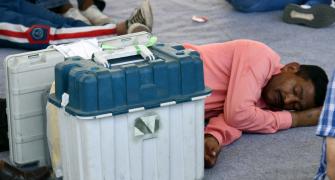Police and detective agencies in Britain are getting sleepless nights as metal thieves are pillaging thousands of properties, including churches, historic buildings and the railway network for lead, copper and other metal and shipping these to India and China.
The gangs target the properties and railway network and sell the collection to dealers as part of international multi-million pound illegal networks.
The metal is then shipped as scrap or after being melted down to India, China and Dubai, police said.
The booming manufacturing and construction industries in these countries have a constant demand for lead, copper and other metals.
Demands for the metal has soared and there has been a near-fivefold rise in robberies at tracks and depots.
"The copper is going through larger scrapyards, then to smelters and then by ship to China, which has an incredible demand for copper, particularly with this year's Olympics and the demand for telecom infrastructure," Andy Trotter, deputy chief constable of the British Transport police, told the media.
Recently, a massive operation was launched across Europe to track down metal thieves whose activities have endangered railway operations and safety of passengers on several occasions.
Several people were arrested in this operation, police said.
Around 979 such cases have been reported since April 2006 in north-east England alone.
The British Transport Police launched 'Operation Drum' to combat cable theft and are working with the railway network to ensure that copper is not left unguarded.







